The 2017 Australian Geographic Nature Photographer of the Year, Justin Gilligan, turns his creative eye to the uniqueicy world of beauty and contrast that he found at the end of the Earth on an expedition to East Antarctica.

Justin Gilligan travelled to Antarctica as part of his prize for winning the 2017 Australian Geographic Nature Photographer of the Year competition. The prize was kindly donated by Heritage Expeditions and you too can visit such wild landscapes with Heritage – see p91. The 2019 competition closes on 25 January and we’re pleased to announce that Justin will join Tui De Roy and Glenn McKimmin to judge the 2019 entries.
WATCHING FROM A ROLLING hill peppered with tussocks of endemic grasses, I’m awestruck by the rawness of the scene before me. And I’m grateful the pelting wind and occasional squalls have subsided enough to allow the return of southern royal albatross to the slopes of subantarctic Campbell Island, a UNESCO World Heritage site. It’s late afternoon and the sun dips towards the horizon, breaks through the clouds and spotlights the birds, many of which are now on the ground, congregating closely and vocalising with each other.
In the distance, other royals soar like pterodactyls on thermals high above broken cliffs reminiscent of fallen castles. It’s a fitting scene for this iconic species. Like their cousin, the wandering albatross, royals have a wingspan of more than 3m, larger than that of any other bird.
Looking west towards Dent Island and east towards our expedition vessel, the Russian-flagged Akademik Shokalskiy, anchored in Perseverance Harbour, the handful of brave expedition members remaining to take in the scene on this final landing are again reminded just how far removed from civilisation we are. It’s been a consistent theme throughout our 30-day expedition – the feeling that we’re among the fortunate few to have experienced a remote and wild realm where nature rules.
This story is from the {{IssueName}} edition of {{MagazineName}}.
Start your 7-day Magzter GOLD free trial to access thousands of curated premium stories, and 9,000+ magazines and newspapers.
Already a subscriber ? Sign In
This story is from the {{IssueName}} edition of {{MagazineName}}.
Start your 7-day Magzter GOLD free trial to access thousands of curated premium stories, and 9,000+ magazines and newspapers.
Already a subscriber? Sign In
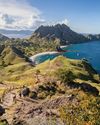
SULAWESI SENSATIONS
There are worlds within worlds and marvels untold waiting to be experienced on Indonesia's remote islands.
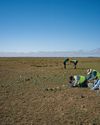
SEARCHING FOR AUSSIE DINOSAURS
Our understanding of where to find ancient life in Australia has been turned on its head by a new appreciation of the country's geology. Now the world is looking to our vast outback as the latest hotspot to locate fossils.
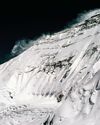
THE HARDEST NIGHT
The first Australian ascent of Mt Everest in 1984 is one of the great feats of mountaineering. Climbed by a small team semi-alpine style, with no bottled oxygen, via the Great (Norton) Couloir, it remains unrepeated 40 years later.
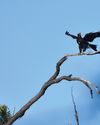
WEDGE-TAILED WONDER
The chance discovery of an eagle nest leads to an extended vigil observing normally hidden behaviours of one of nature's supreme winged marvels.
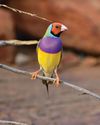
BURDENED BY BEAUTY
Northern Australia's Gouldian finch survives in huge numbers in cages around the world, but its wild population continues to struggle.
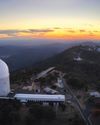
A TELESCOPE FOR A GOLDEN AGE
After a stellar 50 years as one of the country's major scientific assets, the AAT continues to play a major role in keeping Australian astronomy on the world stage.
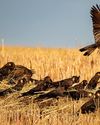
COCKY WHISPERING AT COOMALLO CREEK
This patch of remnant bush on the edge of the West Australian wheatbelt is a place loved by one of Australia's rarest bird species and the man who has studied the site for more than 50 years.

A PIONEERING PAIR
Louisa Atkinson and her mother, Charlotte, were among Australia's earliest authors, and pioneers in women's rights.
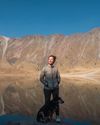
THE LONGEST WALK
Lucy Barnard is walking from Argentina to Alaska -the length of the Americas - on an extraordinary journey of endurance and adventure.
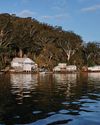
SECLUDED, BUT NOT ALONE
In an era of heightened social isolation, where many of us lead lonely lives, Dangar Island offers the chance to be part of a supportive, connected community.